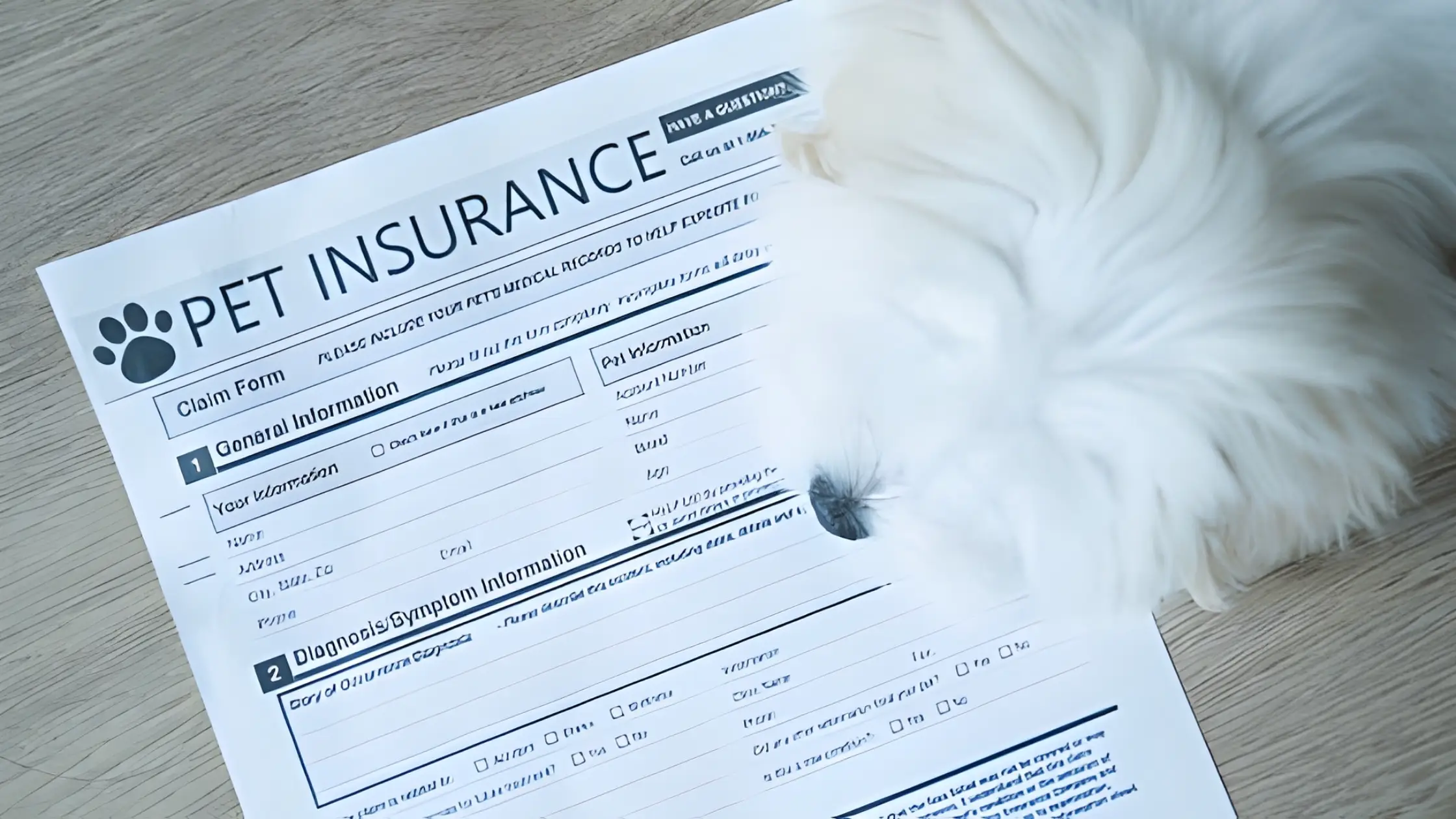What is an ESA letter? It is a key document landlords see when tenants request exceptions to no-pet rules. At LeaseRunner, we guide landlords on how to get a legitimate ESA letter and how to tell if an ESA letter is legitimate. For example, a valid emotional support animal letter for a landlord shows the tenant’s need, the therapist’s licensing, and clear medical support.
We compare a real ESA letter vs a fake ESA letter and check for proper ESA letter format and content. Landlords often ask, "Do landlords actually verify ESA letters?" The answer is yes, we recommend confirming credentials and details. Knowing what an ESA letter must say (and knowing when to reject a fake ESA letter) helps landlords follow the law while protecting their properties.
What Is an ESA Letter?
An ESA letter is a legal document from a licensed therapist, counselor, psychologist, or physician. The letter confirms a tenant’s mental or emotional disability and explains why an animal helps treat it. For a landlord, an emotional support animal letter for a landlord is the only proof you can request to confirm a tenant’s right to an ESA.
If a renter hands you an ESA letter, always check that it:
- Lists the professional’s name and license,
- Is on official letterhead,
- Has the tenant’s name,
- States a clear link between the tenant’s needs and the animal,
- Uses the right ESA letter format.
For example, a valid ESA letter might say: “As a licensed clinical social worker, I confirm this person has a qualifying disability. They require an emotional support animal to help manage their symptoms.” This concrete statement shows the animal’s role isn’t a pet; it’s support, which is confirmed by a mental health expert.
Landlords must also watch out for common tricks. A fake ESA letter may lack the provider’s license, include vague language, or fail to mention any mental health need. If you’re unsure, it’s smart to look up the professional’s license online or seek advice on how to tell if an ESA letter is legitimate. You cannot demand extra forms, charge pet fees, or ask for a legit ESA certification—those are not required by housing law.
What Does an ESA Letter Look Like?

To provide an overview, a valid ESA letter isn't likely handwritten or some other random form. If everything is written by hand or just by using some random letter, that's quite the red flag. Instead, an ESA letter should be on the letterhead of the professional who issued the ESA letter.
The letterhead should always have the contact information and address of the individual who is writing the letter. This ESA letter should have no less than what the specific housing provider (landlord) would need to verify the letter. Usually provided in legitimate letters:
- Tenant’s full name
- Confirmation that the tenant is under the care of a licensed mental health provider
- Statement of the mental or emotional health condition as outlined in the DSM-5
- A direct recommendation for an ESA, such as “the animal mitigates symptoms…”
- License type, number, and issuing state of the provider
- Issuance date and often an expiration date
- Signature with the provider’s printed name
- No generic templates or vague language
For example, a valid letter might say: “As a licensed psychologist (License #12345, CA), I confirm this patient struggles with anxiety. The presence of an ESA alleviates their symptoms.” This shows clear medical necessity, not just a casual pet note.
Watch for missing or vague info, which may indicate a fake ESA letter. To know if an ESA letter is legitimate or not, verify the provider’s license on state portals. Avoid documents claiming “ESA certification” or requiring legit ESA certification, as these are not legally required. Proper review of the ESA letter’s components helps landlords comply with housing laws and prevents fraud.
What Makes an ESA Letter Valid?

A valid ESA letter is more than a simple doctor’s note. It must come from a licensed mental health professional who is currently licensed in the tenant’s state. This ensures the tenant’s claim is real and verified.
Who Can Write a Valid ESA Letter?
Only licensed mental health providers can issue a legitimate ESA letter. These include:
- Psychiatrists (MD or DO)
- Psychologists (PhD or PsyD)
- Licensed clinical social workers (LCSW)
- Licensed professional counselors (LPC)
- Licensed marriage and family therapists (LMFT)
Letters from veterinarians or from online "ESA providers" without real assessments are not valid and should raise concerns.
Essential Contents of a Valid ESA Letter
A legally binding ESA letter must include:
- The tenant’s full name, confirming they are a patient under the professional’s care
- A clear statement that the emotional support animal helps ease symptoms of a diagnosed mental or emotional disability, as recognized in the DSM-5
- Reference to the tenant’s qualifying condition
- Provider’s license type, number, and issuing state
- Date of issue and sometimes expiration
- The signature of the licensed professional, along with their printed name
- A statement confirming compliance with the Fair Housing Act (FHA)
The letter should not disclose the tenant's medical diagnosis but should confirm the disability and the therapeutic benefits of the ESA. An uncomplicated statement (for example, “this animal alleviates symptoms of my patient’s anxiety”) is necessary. This legal distinction separates an ESA letter from a simple permission slip for a pet.
For landlords concerned about risk, see LeaseRunner’s advice on pet liability insurance for renters to help manage property damage risks while honoring ESA rights. By ensuring the letter meets these criteria, landlords can confidently comply with housing laws, avoid accepting fake ESA letters, and better handle tenant requests.
How to Tell If an ESA Letter Is Legitimate (vs. Fake)?

Landlords face growing numbers of ESA letters from online sources and questionable providers. Here’s a brief intro to differentiate a legitimate ESA letter from a fake, because, ultimately, the burden to accept or deny rests on your due diligence.
Signs of a Fake ESA Letter
We regularly review letters at LeaseRunner and recommend you watch for these red flags:
- No mental health provider’s license, credentials, or issue date
- Generic or templated text with no tenant-specific details
- Vague statements (“provides comfort”) with no reference to disability
- Unverifiable or out-of-state providers for in-state tenants
- Non-professional letterhead, weak digital signatures, rampant grammar errors
- Claims from “certification” agencies, there’s no such legal requirement for “ESA certification” or “ESA registry”
Landlords are within their rights to determine if an ESA letter is real. Doubts should prompt a gentle query and, if needed, request proof of the issuer’s status on a public state licensing website.
Real ESA Letter vs. Fake ESA Letter
Comparing a legitimate ESA letter vs a fake ESA letter can be revealing. A genuine ESA letter from a licensed professional documents a specific relationship and assessment. They offer clear legal backing for accommodations, whereas a fake ESA letter is often sloppy and made up of various templates, or from a site that sold them to you.
- Real ESA letter: Includes tenant details, a clear link to a mental health plan, a direct signature from an in-state licensed provider, and a reference to the FHA/HUD law.
- Fake ESA letter: Relies on certification/registry language, uses generic descriptors, lacks licensing credentials, possibly detached from reality (never met the “patient”).
Fake ESA letters undermine trust and can expose both tenants and landlords to legal and financial risk.
How to Verify a Therapist’s License?
To verify legitimacy, landlords can:
- Visit the relevant state’s professional licensing board website
- Search for the mental health professional’s license number and check status (active, not expired, or suspended)
- Confirm practice address and contact info align with the ESA letter
- Reach out directly to the provider’s office if needed—without prying into a tenant’s medical specifics
A landlord’s right to verify ESA letters is clear under FHA, provided all privacy laws are observed.
ESA Letter and Housing Laws: What Landlords Need to Know
Navigating what is and isn’t lawful around assistance animals can feel like walking a tightrope. This section quickly orients our landlord audience on housing law basics related to what an ESA letter is.
The FHA prohibits discrimination against tenants with disabilities, which includes a requirement to make “reasonable accommodations” for emotional support animals—even in properties with strict “no pet” rules. But the law also lays out clear boundaries for both parties, protecting landlords from fraud and tenants from discrimination.
What Landlords Can Legally Do?

Navigating requests for emotional support animals can be tricky for landlords. Knowing your legal rights helps protect your property while respecting tenant needs. Here’s what landlords can legally do when handling emotional support animal letters and accommodation requests. Understanding these points ensures you comply with fair housing laws without crossing boundaries or ignoring legitimate needs.
1. Verify the ESA Letter’s Authenticity
You have the right to confirm that the ESA letter is genuine and that the issuing provider is licensed. This does not mean asking for detailed medical records or diagnosis, which are private. Instead, check the provider’s credentials carefully. Look for:
- The therapist’s full name
- License type and number
- Issuing state
- Letter date and signature
Be wary of fake ESA letters that lack this info or use vague statements. For landlords needing more detail, our guide on pet deposits for emotional support animals offers extra tips on verifying documents.
2. Hold the Tenant Responsible for Damages
While having a valid ESA letter can provide tenants with certain rights, tenants are still responsible for any damage caused by their animal to the unit. For example, landlords are allowed to apply security deposits you paid to address repairs just as they would for damage from any other lease violation.
Just be sure to communicate this upfront. In general, review your pet deposits to make sure they are refundable to avoid miscommunication when it comes time to return the pet deposit.
3. Request Vaccination Records
Although the ESA letter verifies the mental health need, it does not relieve tenants from standard animal health standards. You are allowed to request proof of recent vaccinations for the ESA, and you should do this.
This protects all of the other tenants as well as complies with health codes. Requiring documentation of vaccinations is standard of care for all pets and is a prudent way to safeguard health and safety while not violating anyone's disability rights.
4. Deny the Accommodation Under Certain Conditions
Landlords can deny ESA accommodations if the animal poses a direct threat to health or safety or causes substantial property damage. For example, aggressive behavior or major destruction can justify refusal. However, you must clearly document incidents and notify the tenant formally. Denial cannot be arbitrary and must be based on real, provable issues, not just preferences.
5. Deny Fraudulent Requests
If you suspect a fake ESA letter or misuse (such as forged signatures, non-existent providers, or online documents without proper assessment), you may deny accommodation. Always document your review process thoroughly and communicate your reasons clearly. Protect your property by acting consistently and fairly when requests appear fraudulent.
By following these legal guidelines, landlords can maintain safe, compliant properties while respecting ESA letter requirements. LeaseRunner provides additional landlord resources to navigate these often-complex situations effectively.
What Landlords Cannot Do

Understanding the limits of your rights is just as important as knowing what landlords can legally do. When handling requests related to emotional support animal letters, some landlord actions are off-limits. Respecting these boundaries protects you from legal trouble and ensures fair treatment for tenants with disabilities.
1. Discriminate Based on a "No-Pet" Policy
Even if your property has a strict “no-pet” rule, you cannot refuse a tenant with a valid ESA letter. The Fair Housing Act requires a reasonable accommodation to allow an emotional support animal. This means an ESA trumps your no-pet policies.
For clarity on how this works with contracts, see examples of what a pet addendum is, which allows ESA tenants to keep their animals legally.
2. Charge Any Fees for the Animal
When a tenant presents a legitimate ESA letter, charging pet rent, pet deposits, or special fees is prohibited. These animals are not considered pets under housing law, so standard pet fees don’t apply. For detailed landlord guidance, check out our breakdown on pet fee vs. pet deposit to understand the financial rules around ESAs.
3. Ask About the Tenant’s Specific Disability
Medical privacy is protected by law. Landlords cannot ask tenants for details about their mental or emotional health conditions. You are entitled only to see a valid ESA letter, not to know the specific diagnosis or treatment details. This keeps your role limited to housing and avoids crossing into protected health information territory.
4. Demand a Specific Form
The U.S. Department of Housing and Urban Development (HUD) and the Fair Housing Act (FHA) require only that tenants provide a valid ESA letter. You cannot impose extra paperwork, claim a need for registration, or require tenants to fill out special forms. Rejecting legitimate ESA letters because of form technicalities can lead to legal issues.
5. Require Training or Certification
Many landlords wrongly believe ESAs must be trained or hold a legitimate ESA certification. The truth is, under housing law, there is no legal requirement for ESAs to be professionally trained or certified. Be cautious of tenants offering certificates or registrations from online "ESA providers" as these do not carry legal weight.
By knowing what landlords cannot do, you avoid violations and ensure your treatment of ESA tenants is lawful and respectful. LeaseRunner supports landlords in applying these rules clearly and fairly, protecting your rental business while honoring tenant rights.
How Landlords Handle Housing Disputes Over ESA?

Disputes about emotional support animal letters and accommodations can happen. Knowing how to respond can help landlords resolve issues fairly and smoothly. Here are LeaseRunner’s best practices based on experience and housing law.
1. Engage in Good-Faith Communication
When a tenant submits an ESA letter, start with open, respectful dialogue. Ask to review the letter and explain if you have any concerns. For example, clearly state your building’s policies and any questions about the animal’s behavior or impact. Refer to your lease rules or pet screening process to clarify expectations. Staying calm and cooperative encourages tenants to respond positively.
2. Address Legitimate Concerns
If neighbors complain or if there are issues like property damage or aggression, document everything carefully. Use incident logs with dates, times, and detailed descriptions of what occurred. This factual record helps if the dispute escalates.
Share concerns with the tenant politely and ask for solutions, like better control of the animal or proof of training. This shows you respect the tenant’s rights while protecting your property and other residents.
3. Formalize All Communication
Keep written records of every ESA interaction. Save copies of letters received, verifications you requested, and maintenance or repair records related to animal damage. When conflicts persist, formal letters or email communications clarify what has been discussed.
For example, if the tenant’s ESA causes damage or disturbances, send a detailed letter outlining the issue, citing lease clauses, and requesting corrective action. This documentation protects you legally if a fair housing complaint arises.
Conclusion
In the complex world of fair housing, knowing what an ESA letter is and keeping a step ahead makes all the difference for landlords. An ESA letter is more than paper; it's a protected legal document tied to real medical need and federal housing rights.
But with that protection comes real responsibility for both renter and manager. Accept only properly issued letters from licensed professionals, stay alert for forgeries, and treat all claims with thoughtful professionalism and compliance.
We at LeaseRunner have seen every scenario, from first-time ESA requests to months-long legal disputes. The bottom line: A valid ESA letter is a gateway to equal housing opportunities, but it’s also a test of your diligence. If you need further clarity, revisit our detailed guides or consult expert sources with high authority and strong track records.
FAQs
What makes an ESA letter valid?
A valid ESA letter must come from a licensed mental health professional. It should include the tenant’s name, provider’s license details, and a clear explanation linking the tenant’s disability to the need for the animal. The letter must be on official letterhead, dated recently (not expired), and reference compliance with the Fair Housing Act. The language should be specific, not generic.
Do landlords actually verify ESA letters?
Yes, landlords verify ESA letters by checking the professional’s identity, license status, and whether the letter meets FHA standards. They cannot ask for medical details or the tenant’s diagnosis, keeping privacy intact.
How do I get a legit ESA letter?
To get a legitimate ESA letter, you must be evaluated by a licensed mental health provider, such as a therapist or psychologist. Only they can assess your condition and issue an official letter if you qualify. Beware of quick online services offering instant or uncertified letters—they often don’t meet legal standards.
Can I write my own ESA letter?
No. Only licensed mental health professionals can write valid ESA letters. Self-written letters or forms completed by friends or family are not accepted under HUD or FHA rules.







